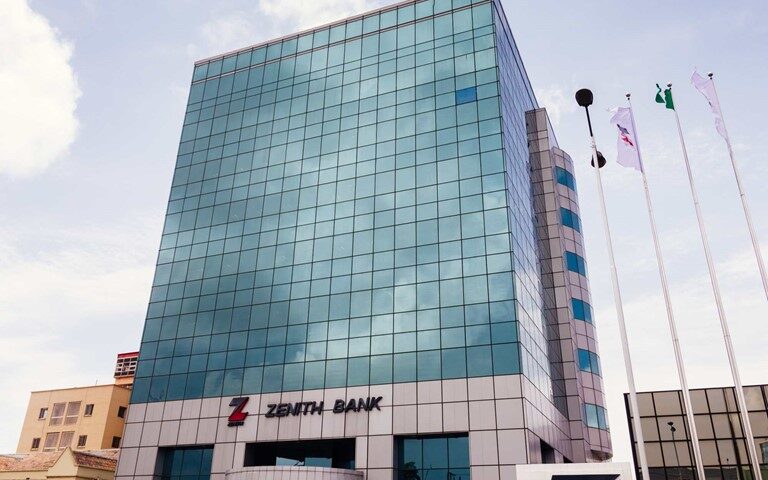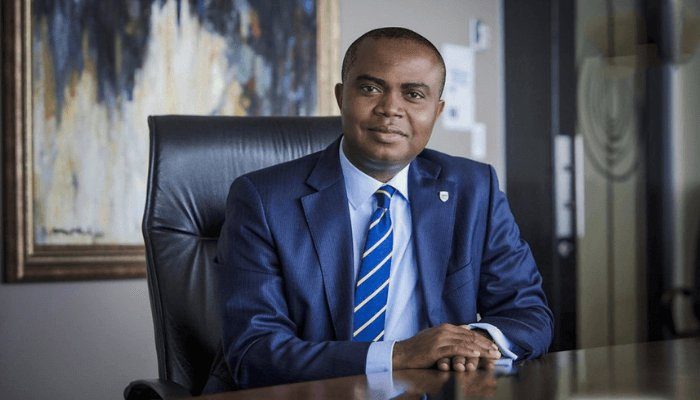In the first quarter of 2025, capital inflows to Nigeria stood at $5.6 billion according to National Bureau of Statistics (NBS) data. But behind the numbers are people and businesses beginning to feel the change. The International Monetary Fund (IMF) notes that investment decisions are shaped by economic, institutional, and market-related factors. For Nigeria, its vast market size, growth potential, improved macroeconomic stability and Central Bank of Nigeria (CBN) reforms, especially those that allow foreign investors to repatriate profits, are emerging as strong incentives.
Precious Ugwuzor
reports
There is rising interest from domestic and global investors in Nigeria assets, as seen in the latest capital inflows to the country.
The rising investors’ interest is linked to fallout of crucial reforms instituted by the Central Bank of Nigeria (CBN) under the Olayemi Cardoso leadership. The reforms have led to macroeconomic stability and raised the level of foreign investors interests in Nigeria assets.
Upon assuming office in October 2023, the apex bank leadership had prioritised reforms to rebuild Nigeria’s economic buffers and strengthen resilience.
CBN’s policies, including the currency reforms, led to investment inflows from abroad, and reduced interventions in the domestic forex market.
The unification of exchange rates and the clearing of over $7 billion FX backlog raised the country’s investment outlook, with multilateral organizations, like the World Bank describing it as bold intervention to improve the economy’s sustainability in the long run.
Also, Nigeria’s sovereign risk spread has fallen to the lowest level since January 2020, erasing the premium accumulated during the pandemic and subsequent strain on its economy. All these are deliberate efforts to woo investors and sustain capital inflows to the economy.
What the IMF is saying
According to the International Monetary Fund (IMF), Foreign Direct Investment (FDI) inflows to states are determined by a mix of economic, institutional, and market-related factors. Key determinants include the host country’s market size and growth potential, the quality of its infrastructure and business climate, and its level of macroeconomic stability and political stability. Trade openness, factor costs (such as labor and wages), and effective government regulations also play a significant role.
In International Monetary Fund (IMF) Working Paper, by Ewe-Ghee Lim, titled: “Determinant of, and the Relation Between, Foreign Direct Investment and Growth” detailed that FDI determinants generally come in two forms: investor surveys and econometric or in-depth case studies.
“We reviewed two large investor surveys first. The first is a recent survey of CEOs, CFOs, and other top corporate executives of the Global 1000 companies. The survey cites large market size, political and macroeconomic stability, GDP growth, regulatory environment, and the ability to repatriate profits as the five most important factors affecting FDI,” he said.
He said that heavy manufacturers remain mostly interested in the large emerging markets, commitment to privatisation.
The IMF also discovered that the most important determinants of FDIs inflows were the size of the market, the cost of labor and FDI policies.
Also to be considered are the investors viewed restrictions on repatriation of earnings, local content and local ownership requirements as serious setback to FDI.
“In general, the technology-intensive sectors such as general machinery and electronics were the most sensitive to restrictive FDI policies. Interestingly, fiscal and tax incentives were viewed as having little or no effect on FDI decisions. Such incentives policies were viewed as perhaps indicative of a positive political attitude towards investment, but also unstable because they could just as easily be reversed,” the report said.
Reforms impact on FX inflows
These reforms have led to surge in capital inflows into the Nigeria economy. The inflows rose to $5.6 billion in the first quarter of 2025, the National Bureau of Statistics (NBS) report has shown. The inflows represent 67.12 per cent jump from $3.4 billion recorded in the same period of last year.
The latest “Nigeria Capital Importation Q1 2025” report released represents 10.86 per cent surge from the $5.1 billion reported in fourth quarter of 2024.
“In Q1 2025, total capital importation into Nigeria stood at US$5642.07 million, higher than $3.37 billion recorded in Q1 2024, indicating an increase of 67.12 per cent. In comparison to the preceding quarter, capital importation increased by 10.86 per cent from $5.08 billion in Q4 2024,” the report stated.
The NBS also stated that portfolio investment ranked top with $5.2 billion, accounting for 92.25 per cent, followed by other investment with $311.17 million, accounting for 5.52 per cent.
The report indicated that, “Foreign Direct Investment recorded the least with $126.29 million accounting for 2.24 per cent of total capital importation in Q1 2025.”
According to the NBS, the banking sector took the lead with the highest inflows in Q1 2025.
The report stated, “The Banking sector recorded the highest inflow with $3.1 billion, representing 55.44 per cent of total capital imported in Q1 2025, followed by the Financing sector, valued at $2.09 billion (37.18 per cent), and Production/Manufacturing sector with $129.92 million (2.30 per cent).”
The report further noted that capital importation during the reference period originated largely from the United Kingdom with $3681.96 million, showing 65.26 per cent of the total capital imported.
In emailed note to investors, Managing Director, Afrinvest West Africa Limited, Ike Chioke, explained that Portfolio Investment (92.2 per cent of total capital) dominated flows, rising by 30.1 per cent quarter-on-quarter, and 150.8 per cent year-on-year to $5.2 billion.
The bulk of the FPI flows was to Money market instruments (up 162.2 per cent year-on-year to $4.2 billion), while Bonds (up 108.5 per cent) and Equities (up 137.7 per cent) attracted $877.4 million and $117.3 million respectively.
Other analysts at Afrinvest explained that capital importation captures financial and physical capital entering a country from offshore sources, based on banking sector and Customs records. These inflows expand the capital stock available to drive economic growth and often serve as a litmus test of an economy’s health and international investment competitiveness.
They explained that on the surface, the rise in quarterly capital importation to a five-year high might suggest renewed foreign investor optimism in the domestic economy.
“In our view, this spike was driven by opportunistic investments in the money market, where Treasury Bills, Bonds, and OMO bills offered rates above 20 per cent in the period. However, such flows are highly sensitive to shifts in domestic monetary policy, global risk sentiment, and macroeconomic shocks, and flows momentum could wane when the CBN pivots to a more accommodative rate stance,” they said.
“Meanwhile, the share of FDI – a cheaper and more impactful capital on long-term economic growth – continues to diminish. This trend is reflective of low confidence in the long-term prospects of the economy amid the legacy issues of insecurity, weak institutions and enforcement of law, bureaucratic inefficiencies, and a high corruption perception”.
Continuing, they stated that weak traction into non-financial sectors such as Manufacturing, ICT, Construction, Oil & Gas, and Transporation, paints a less compelling picture of the overall surge in capital inflows in Q1. We note that while the uptick may support currency stability and short-term growth spurts, the underlying quality of these inflows mirrors previous episodes of hot-money dependence that heightened vulnerability to external shocks.
“Lastly, the concentration of investments in Lagos and Abuja (only 0.4% of the $5.6bn inflows were directed elsewhere) spotlights the deep competitiveness gaps across sub-nationals. Hence, subnational governments need to strengthen their business environments and improve overall investment attractiveness,” they said.
“Nigeria appears to be back in business as long-awaited economic reforms take shape,” said Emre Akcakmak, portfolio manager at East Capital. Key measures include improved currency liquidity, leeway for investors to repatriate their profit, and the stable naira.
“We feel the Central Bank of Nigeria will continue to stem any sharp appreciation of the naira to limit profit taking from the fast money community,” Akcakmak said.
Banking sector to the rescue
A well-recapitalised banking sector is undeniably crucial for the growth of the domestic economy. Cardoso had advised banks to prepare for a new round of recapitalisation to ensure they have the necessary capital to support the Federal Government’s plan to achieve $1 trillion Gross Domestic Product (GDP) target by 2030.
He said that President Bola Ahmed Tinubu’s economic plan aims to reach a $1tr GDP by 2030, emphasising that the current bank capitalisation is insufficient to support such a large economic scale.
Cardoso asked: “Will Nigerian banks have sufficient capital relative to the financial system’s needs in servicing a $1tr economy in the near future? In my opinion, the answer is “No!” unless we take action. That action was the ongoing recapitalisation of banks, meant to prepare them for expansion and attract big ticket transactions to support economic growth”.
The Policy Advisory Council report on the national economy, had set an ambitious goal of achieving a GDP of $1 trillion, with clearly defined priority areas and strategies.
Adeniran revealed that incorporated new and emerging sectors, consumption baskets update, and data collection refining methods helped produce a more complete picture of national output.
Aliyu Ilias, developmental economist, noted that several sectors have previously remained uncaptured in official data, particularly entertainment. “By rebasing our GDP now, included those areas properly. This new visibility will make Nigeria appear much stronger to foreign investors, which will naturally help us attract more capital,” he said.
He explained that the exercise will also reveal untapped economic potential and guide government resource allocation. “It will show where we are strongest structurally, such as in mining or other emerging sectors. That insight will help the government focus its efforts more strategically.”
“Finally,” he added, “it will support economic policy formulation, helping us align our strategy with the reality on the ground. We will know exactly where to put more effort.”
Ilias explained that while this statistical adjustment does not instantly generate new revenue, it creates a more reliable framework for fiscal planning, investment strategies, and development interventions.
For him, by aligning economic data with current realities, the government and private sector can more effectively target policies that stimulate job creation, improve productivity, and sustain long-term growth.
Seun Onigbinde, director of Civic Technology Group BudgIT, said the previous rebasing underscored the substantial impact of policy changes in the services and ICT sectors, such as telecommunications deregulation and banking sector recapitalisation. “Rebasing of the GDP must reflect changes in the economy, which are a product of public policies over time,” he added.
Rebasing is also critical for domestic policy. It allows the government to better assess tax collection efficiency, measure sectoral contributions, and design social programmes that are data-driven and results-oriented.
Gabriel Okeowo, country director for BudgIT, said, “Rebasing allows planners to be more intentional about solving Nigeria’s biggest problems: poverty, infrastructure gaps, and job creation.”
Lagos-based economist, Nelson Adedeji, explained that despite the bump in GDP size, the rebasing never a silver bullet.
“We must acknowledge that genuine economic growth extends beyond statistical adjustments. For ordinary Nigerians to experience meaningful improvement in living standards, the President Bola Tinubu administration must complement GDP rebasing with substantive policies addressing infrastructure deficits, security challenges, agricultural productivity, manufacturing capacity, and the overall ease of doing business,” he stated.
The post How CBN Reforms, Stable Economy is Opening Domestic Markets for FDI inflows appeared first on THISDAYLIVE.


